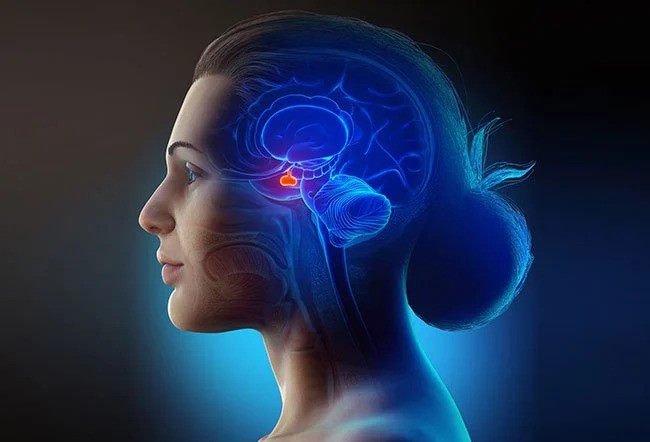Prolactinoma, a benign tumor of the pituitary gland, is a condition that often goes unnoticed until its symptoms become unmanageable. This tumor causes an overproduction of the hormone prolactin, leading to a variety of physical and emotional disruptions. Understanding when to seek treatment for prolactinoma is crucial, as early intervention can significantly improve quality of life. Below, we explore the top 10 signs indicating that it may be time to consult a specialist for prolactinoma treatment.
1. Unexplained Changes in Menstrual Cycle
For many women, one of the first noticeable signs of prolactinoma is an irregular menstrual cycle. If you find that your periods have become erratic or have completely ceased, this could signal elevated prolactin levels. Such disruptions not only affect your monthly routine but can also lead to complications such as infertility. When periods become irregular, it’s essential to seek medical advice promptly. A healthcare provider can offer insights into whether hormonal imbalances, possibly caused by prolactinoma, are at play.
2. Galactorrhea: Spontaneous Milk Production
Galactorrhea, or the unexpected discharge of milk from the breasts, is a hallmark symptom of elevated prolactin levels. This condition can affect both men and women and is particularly troubling when it occurs without pregnancy or breastfeeding. The experience can be both distressing and socially challenging, leading to feelings of embarrassment or anxiety. If you notice this unexpected symptom, it’s imperative to seek treatment. Addressing the underlying cause, such as a prolactinoma, can help alleviate this distressing condition.
Decreased Libido and Sexual Dysfunction
Prolactinoma treatment can have a profound impact on sexual health, manifesting as decreased libido or sexual dysfunction. In men, this may present as erectile dysfunction, while women may struggle with sexual arousal. These issues often stem from hormonal imbalances caused by elevated prolactin levels, leading to emotional distress and challenges in intimate relationships. Recognizing these changes as potential indicators of prolactinoma is crucial. Consulting a specialist can open the door to effective treatment options, allowing individuals to reclaim their sexual health.
Visual Disturbances
As prolactinoma grows, it can exert pressure on the optic nerves, leading to serious visual complications. Symptoms such as blurred vision, double vision, or even peripheral vision loss warrant immediate medical attention. If you experience any alterations in your vision, it is critical to seek evaluation without delay. Early intervention can prevent further damage, ensuring that your vision and overall health are safeguarded. Consulting with a neurosurgeon or endocrinologist can provide the specialized care needed to address these alarming symptoms.
Headaches
Frequent or severe headaches that don’t seem to respond to typical pain relief methods may signal the presence of prolactinoma. These headaches can arise from increased intracranial pressure due to tumor growth. If you are experiencing persistent headaches, especially when accompanied by other concerning symptoms, it’s advisable to seek a thorough evaluation. Understanding the cause of these headaches is vital, as effective treatment can alleviate not only pain but also potential complications associated with the tumor.
Mood Changes and Depression
The hormonal imbalances caused by elevated prolactin levels can significantly impact mental health, resulting in mood swings, anxiety, and depression. If you find yourself experiencing unexplained emotional changes, consider that these may be linked to prolactinoma. Seeking treatment is crucial not only for physical symptoms but also for improving emotional well-being. Engaging with a healthcare provider can lead to a comprehensive treatment plan that addresses both the physical and psychological aspects of prolactinoma .
Weight Gain or Difficulty Losing Weight
Some individuals with prolactinoma report unexplained weight gain or challenges in losing weight, despite maintaining a healthy diet and lifestyle. This can be due to hormonal changes that affect metabolism. If you notice significant changes in your weight that cannot be attributed to other factors, it’s wise to consult a healthcare provider. They can assess whether prolactinoma or another underlying condition may be contributing to these changes, guiding you toward effective management strategies.
Fatigue and Lack of Energy
Chronic fatigue and a pervasive lack of energy can indicate several health issues, including prolactinoma. The hormonal disruptions associated with this condition can lead to feelings of exhaustion that are difficult to shake off. If you find yourself unusually fatigued, particularly when paired with other symptoms, it may be time to seek professional advice. Addressing the root cause of your fatigue can lead to improved energy levels and overall well-being.
Changes in Hair Growth
In women, prolactinoma can lead to changes in hair growth patterns, including excessive hair loss or hirsutism—unwanted hair growth in areas more typical for men. Sudden changes in hair growth can be particularly distressing and may indicate hormonal imbalances. If you notice these changes, it is essential to engage with a healthcare provider to explore potential prolactinoma treatment options. Understanding the underlying causes can help restore balance and improve self-esteem.
Family History of Pituitary Disorders
If you have a family history of pituitary disorders or other endocrine issues, you may be at a higher risk for developing prolactinoma. Awareness of your family history is crucial if you begin to experience any of the symptoms mentioned above. Early detection and treatment are vital in managing prolactinoma effectively. Consulting with a specialist can provide you with personalized care and monitoring, ensuring that any potential issues are addressed promptly.
Recognizing the signs of prolactinoma is the first step towards effective treatment. If you identify with any of these symptoms, don’t hesitate to reach out for professional care. Dr. Robert Louis at the Brain & Spine Center in Newport Beach specializes in diagnosing and treating conditions like prolactinoma. With advanced training in minimally invasive techniques, he can tailor a treatment plan that addresses your unique needs and restores your health. By seeking treatment early, you can take control of your health and mitigate the complications associated with prolactinoma. Your well-being is paramount, and expert care is available to guide you through your treatment journey.
Frequently Asked Questions:
1.What is prolactinoma?
Prolactinoma is a benign tumor of the pituitary gland that leads to an overproduction of prolactin, a hormone that can cause various physical and emotional symptoms.
2.What are the common symptoms of prolactinoma?
Common symptoms include irregular menstrual cycles, galactorrhea (spontaneous milk production), decreased libido, visual disturbances, persistent headaches, mood changes, weight gain, fatigue, hair growth changes, and a family history of pituitary disorders.
3.How can prolactinoma affect my vision?
Prolactinoma can cause visual disturbances like blurred vision or peripheral vision loss if the tumor presses on the optic nerves. It’s crucial to seek treatment promptly to prevent further damage.
4.Can prolactinoma cause emotional and psychological symptoms?
Yes, hormonal imbalances caused by prolactinoma can lead to mood swings, anxiety, and depression, making mental health care a crucial part of treatment.
5.When should I seek medical help for prolactinoma symptoms?
If you experience symptoms such as irregular periods, unexpected milk production, visual changes, severe headaches, or unexplained fatigue, it’s important to seek medical help promptly to prevent complications.
6.Is prolactinoma treatment effective?
Yes, early detection and treatment of prolactinoma can significantly improve symptoms and quality of life. Treatment options, such as medication or surgery, can be tailored to individual needs by a specialist.
7.Can men have prolactinoma?
Yes, men can develop prolactinoma as well. Symptoms in men may include erectile dysfunction, decreased libido, and gynecomastia (enlarged breast tissue).




















